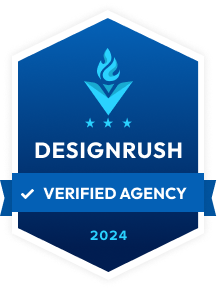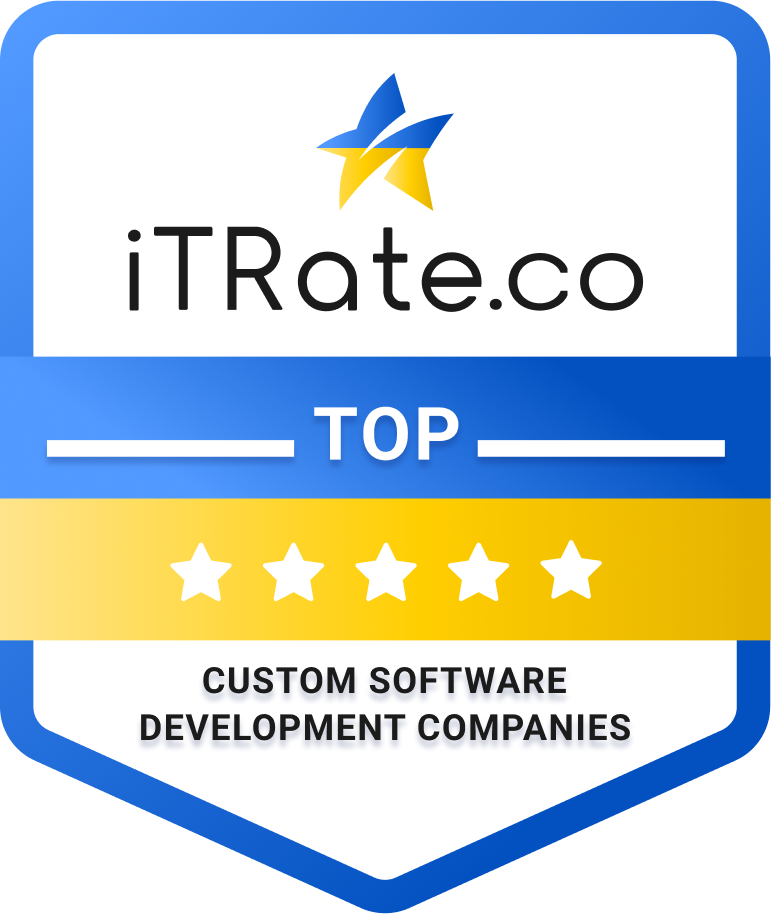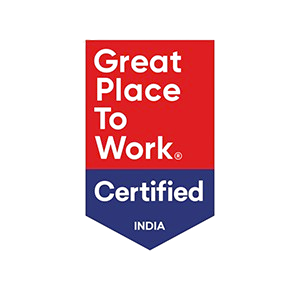
Introduction
In today’s fast-paced world of web development, PHP frameworks have become indispensable tools for developers. These frameworks provide a structured and efficient way to build robust web applications, saving time and effort. To keep up with the evolving landscape of web development, it’s crucial to explore the latest frameworks that can enhance productivity and deliver outstanding results.
In this article, we will dive into the top 5 PHP frameworks for modern web development in 2024. We will explore their key features, strengths, and use cases. Let’s get started and discover the most promising frameworks that can empower your web development projects!
Top 5 PHP Frameworks for Modern Web Development in 2024:
1. Laravel
Laravel has firmly established itself as one of the leading PHP frameworks for modern web development. With its elegant syntax and powerful features, Laravel enables developers to create scalable and maintainable applications. Its robust ecosystem offers a wide range of libraries and tools, making it a versatile framework for various project types.
Whether you’re building a small business website or a complex enterprise application, Laravel provides a solid foundation with features like routing, ORM, authentication, and caching.
Reasons why developers choose to work with Laravel:
- Elegant Syntax: Laravel offers an expressive and elegant syntax that allows developers to write clean and readable code. It follows the principle of "coding by convention," reducing the need for repetitive tasks and enhancing productivity.
- Robust Ecosystem: Laravel has a rich ecosystem that provides a wide range of libraries, packages, and tools. These resources simplify common development tasks and enable developers to build feature-rich applications efficiently.
- Built-in Features: Laravel comes with a plethora of built-in features that speed up development. It provides an intuitive routing system, an ORM called Eloquent for database interactions, powerful authentication mechanisms, and a caching system for optimizing performance.
- Blade Templating Engine: Laravel's Blade templating engine offers a simple yet powerful way to structure and manage views. It allows developers to write clean and reusable templates, promoting code organization and maintainability.
- Active Community: Laravel has a large and active community of developers that contributes to the framework by developing packages, writing tutorials, and providing support. The community's engagement ensures continuous improvement and keeps Laravel up to date with the latest industry trends.
2. Symfony
Symfony is another popular PHP framework known for its flexibility and extensibility. It follows the principle of reusable components, allowing developers to create modular applications with ease. Symfony’s comprehensive documentation and active community make it an excellent choice for large-scale projects. Its powerful caching mechanism, security features, and seamless integration with third-party libraries contribute to its popularity among developers.
Reasons why developers choose Symfony:
- Reusable Components: Symfony follows the "components over frameworks" approach, providing a collection of decoupled and reusable components. This modularity allows developers to select and use only the components they need, making Symfony highly flexible for diverse project requirements.
- Comprehensive Documentation: Symfony has excellent documentation that covers all aspects of the framework. This comprehensive resource guides developers through various features, best practices, and common use cases, making it easier to learn and leverage the framework effectively
- Mature Ecosystem: Symfony's ecosystem is mature and well-established. It offers a wide range of third-party bundles and libraries that extend the framework's functionalities. The ecosystem provides solutions for caching, security, form handling, and many other common development tasks.
- Enterprise-Grade Features: Symfony is known for its enterprise-grade features, including robust security mechanisms, caching options, and internationalization support. These features make Symfony a reliable choice for large-scale projects that require high performance, scalability, and maintainability
- Community Support: Symfony has an active and supportive community that actively contributes to the framework's development. The community organizes conferences, maintains documentation, and develops plugins and bundles, ensuring continuous improvement and support for Symfony users.
3. CodeIgniter
CodeIgniter is a lightweight PHP framework that prioritizes simplicity and speed. It offers a small footprint while still providing essential features required for modern web development. CodeIgniter’s clear documentation and straightforward setup process make it a favorite among beginners and developers seeking a hassle-free experience. Despite its lightweight nature, CodeIgniter offers a rich set of libraries, enabling developers to build efficient and secure web applications
Reasons why developers find CodeIgniter appealing:
- Small Footprint: CodeIgniter has a small footprint, making it easy to install and deploy. It requires minimal server resources, ensuring fast execution and optimal performance.
- Straightforward Setup: CodeIgniter's setup process is straightforward, even for beginners. Its clear documentation guides developers through the installation and configuration steps, allowing them to get started quickly
- Essential Features: CodeIgniter offers essential features needed for modern web development, such as routing, form validation, database interactions, and session management. These features are carefully designed to provide a balance between simplicity and functionality.
- Beginner-Friendly: CodeIgniter is considered beginner-friendly due to its simplicity and ease of use. Its small learning curve allows developers to grasp the framework's concepts and start building web applications without extensive prior knowledge.
- Active User Community: CodeIgniter has an active and supportive user community that provides assistance, shares knowledge, and develops plugins and libraries. This vibrant community ensures that developers can find help and resources whenever needed.
4. CakePHP
CakePHP is a mature PHP framework that emphasizes convention over configuration. It provides a streamlined development experience by reducing the need for repetitive coding tasks. CakePHP’s integrated ORM, scaffolding, and code generation features make it ideal for rapidly prototyping applications. With its focus on convention, developers familiar with the framework can quickly navigate projects, enhancing productivity and code maintainability
Reasons why developers choose CakePHP
- Rapid Development: CakePHP offers a scaffolding feature that automates the generation of code for common tasks. This feature enables developers to quickly prototype applications and reduces the amount of repetitive coding.
- Integrated ORM: CakePHP comes with a powerful Object-Relational Mapping (ORM) tool called "CakePHP ORM." This ORM simplifies database interactions by providing a convenient interface for querying and manipulating dat
- Convention over Configuration: CakePHP follows the principle of convention over configuration. By adhering to specific naming conventions, developers can build applications faster, as the framework automatically handles many configuration details.
- Code Generation: CakePHP provides code generation features that streamline the development process. Developers can generate controllers, models, and views with just a few commands, reducing the time and effort required for routine coding tasks.
- Community Support: CakePHP has a dedicated and active community that contributes to the framework's growth. The community provides support, releases updates, and develops plugins, ensuring that developers have access to the latest tools and resources.
5. Phalcon
Phalcon stands out as a high-performance PHP framework due to its unique implementation as a C extension. It ensures exceptional execution speed and efficiency. Phalcon’s rich feature set includes caching, asset management, and ORM, making it suitable for demanding applications. While its installation might require additional steps compared to other frameworks, the performance benefits it offers are worth considering, especially for projects with stringent performance requirements.
Reasons why developers opt for Phalcon:
- Exceptional Performance: Phalcon's C extension implementation ensures exceptional execution speed and efficiency. It reduces overhead and memory consumption, making Phalcon one of the fastest PHP frameworks available.
- Rich Feature Set: Phalcon provides a rich set of features required for modern web development. It includes powerful caching mechanisms, asset management tools, ORM capabilities, and support for MVC (Model-View-Controller) architecture.
- Low-Level Access: Phalcon allows developers to access low-level functionalities directly, enabling them to fine-tune performance and optimize their code for specific use cases.
- Flexible Integration: Phalcon seamlessly integrates with other PHP frameworks and libraries. Developers can combine Phalcon's performance benefits with the functionality provided by other frameworks, creating a customized development environment.
- Growing Community: Phalcon has a growing community of developers who appreciate its performance advantages. This community actively contributes to the framework's development, ensuring continuous improvement and support for Phalcon users.
Conclusion
As we venture further into 2024, the top 5 PHP frameworks for modern web development continue to evolve and cater to the needs of developers. Laravel, Symfony, CodeIgniter, CakePHP, and Phalcon offer unique features and advantages, making them stand out in the PHP ecosystem.
When selecting a framework for your next web development project, consider factors such as project requirements, the development team’s expertise, and community support. By leveraging the power of these frameworks, you can streamline your development process, increase productivity, and deliver exceptional web applications in the ever-advancing world of technology.
Ready to take your web app development project to the next level? Contact us today and let our experienced team help you choose the perfect PHP framework and bring your ideas to life. Whether you’re starting a small business website or embarking on a large-scale enterprise application, our experts are here to assist you. Submit your inquiry now and let’s create something amazing together!
FAQs about PHP Frameworks for Modern Web Development
1. Which PHP framework is the best for beginners?
CodeIgniter is often recommended for beginners due to its simplicity and ease of use. Its small learning curve and clear documentation make it a great choice for those starting their web development journey.
2. Which PHP framework is suitable for large-scale projects?
Symfony is well-suited for large-scale projects due to its modular architecture and extensive community support. Its reusable components and robust ecosystem make it easier to manage complex applications and collaborate with other developers.
3. Can I use multiple PHP frameworks in a single project?
While it’s technically possible to use multiple PHP frameworks in a project, it’s generally not recommended. Mixing frameworks can lead to compatibility issues, increased complexity, and reduced maintainability. It’s best to choose a single framework that meets your project’s requirements.
4. Are PHP frameworks suitable for building RESTful APIs?
Absolutely! PHP frameworks like Laravel and Symfony provide excellent support for building RESTful APIs. They offer features like routing, request/response handling, and serialization, making it straightforward to develop APIs that follow best practices.
5. Are PHP frameworks suitable for enterprise-level applications?
When selecting a PHP framework, consider factors such as project requirements, the development team’s familiarity with the framework, community support, and available resources. It’s essential to choose a framework that aligns with your project’s goals and can be maintained effectively in the long term
6. Is Cloud Native the same as cloud-based?
Yes, PHP frameworks like Laravel and Symfony are widely used for building enterprise-level applications. They provide the necessary features for scalability, security, and maintainability required by such applications. These frameworks have a strong ecosystem and are backed by large communities, ensuring continuous support and updates.











Thanks for sharing. I read many of your blog posts, cool, your blog is very good.
Thank you for your support! I’m glad you enjoy the blog.